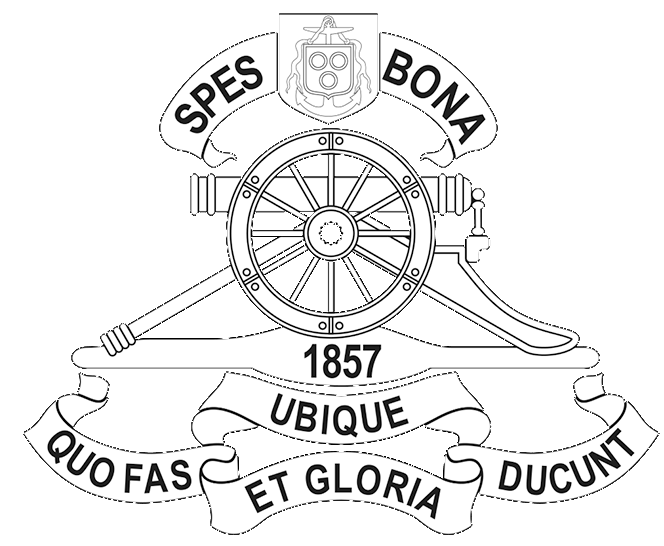Bagpipes and drums in Cape Town, South Africa
About the band
What makes this band truly remarkable is the diverse makeup of its members, who hail from all walks of life. Among them, you’ll find students embarking on their musical journey, seasoned pensioners, respected banking officials, a passionate travel agent, influential figures from various big businesses, and even a skilled winemaker. Together, they form an eclectic ensemble that brings a dynamic energy to their performances.
Under the expert leadership of Pipe Major Scheffel and Drum Major Bill White, the Nelson Mandela Artillery Pipes & Drums has flourished into a formidable force. With a strong core of 20 dedicated members and a vibrant group of learners rapidly ascending through the ranks, their practices resonate within the historic walls of the Castle of Good Hope.
Whether they take the stage for a captivating concert or march in splendid formation on parade, the Nelson Mandela Artillery Pipes & Drums proudly represents the spirit of the Cape Town Pipe Band Fraternity. Their captivating melodies and commanding presence make them an ideal choice for any event or function.


Our Tartan
The Royal Stewart tartan, the most renowned tartan associated with the esteemed royal House of Stewart. Notably, this tartan holds the distinction of being the personal tartan of none other than Queen Elizabeth II. Traditionally, wearing this tartan required explicit permission from the Queen, emphasizing its exclusivity.
However, the Scottish Register of Tartans observes that in practice, due to its popularity, it has become a universal tartan, which can be worn by anyone who doesn’t have their own clan tartan.
In 1952 when Corporal Piper Ken Langlands, representing the band boldly applied for permission to wear the Royal Stewart tartan. Miraculously, his request was granted, thereby bestowing upon the band the honor of adorning this cherished tartan.
As you traverse various events and occasions, you may come across individuals proudly displaying their kilts in the Royal Stewart tartan. Weddings, significant ceremonies, and solemn funerals often witness the resplendent presence of this iconic tartan, symbolizing the intertwining of tradition and timeless elegance.
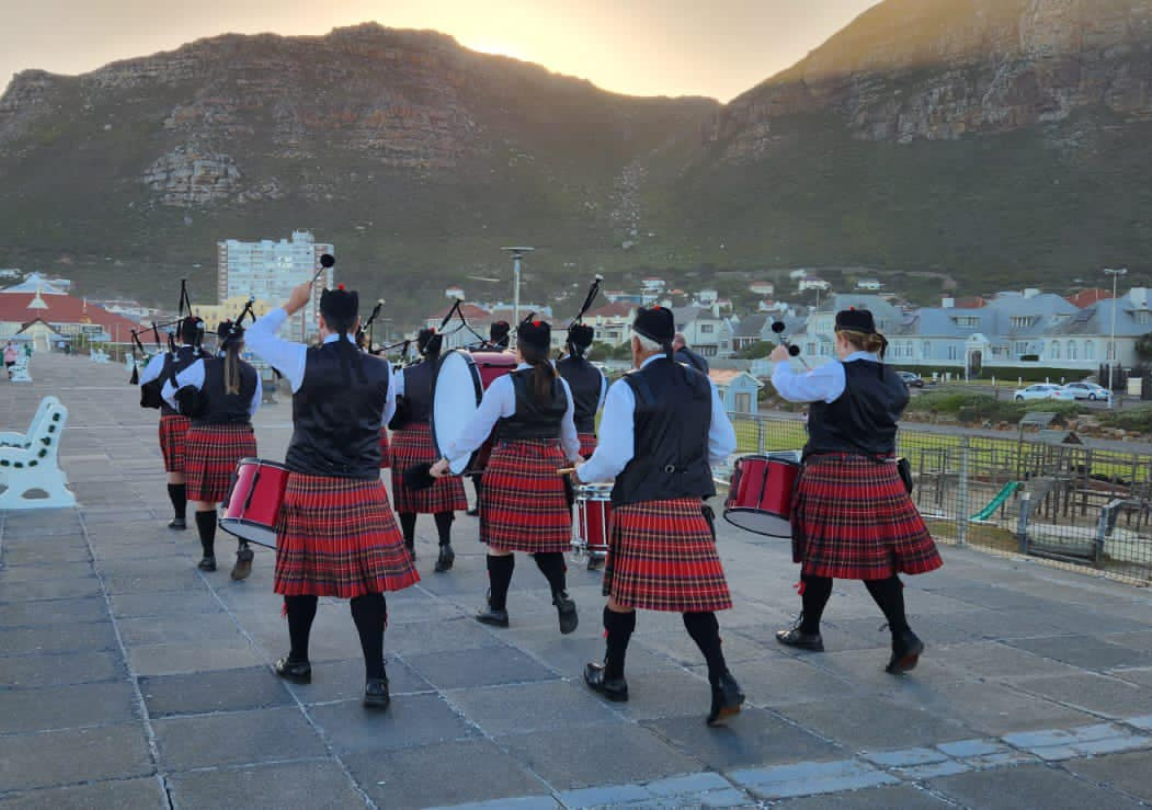

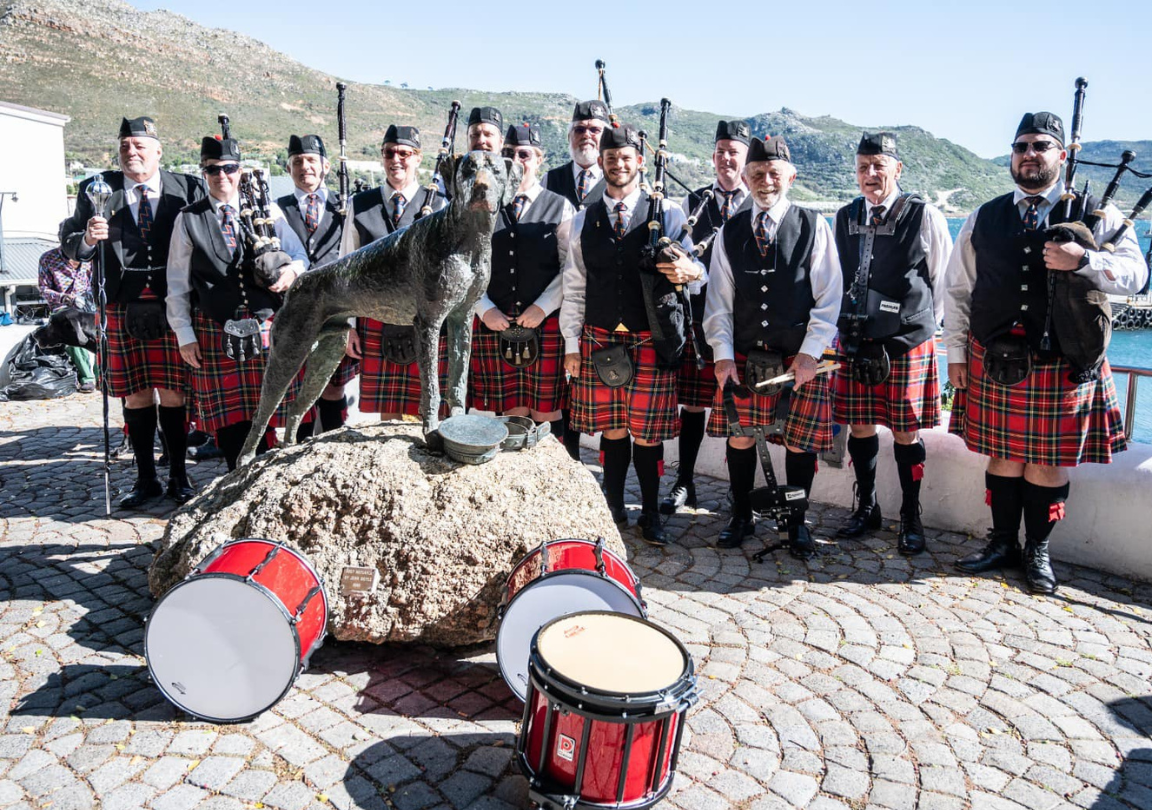
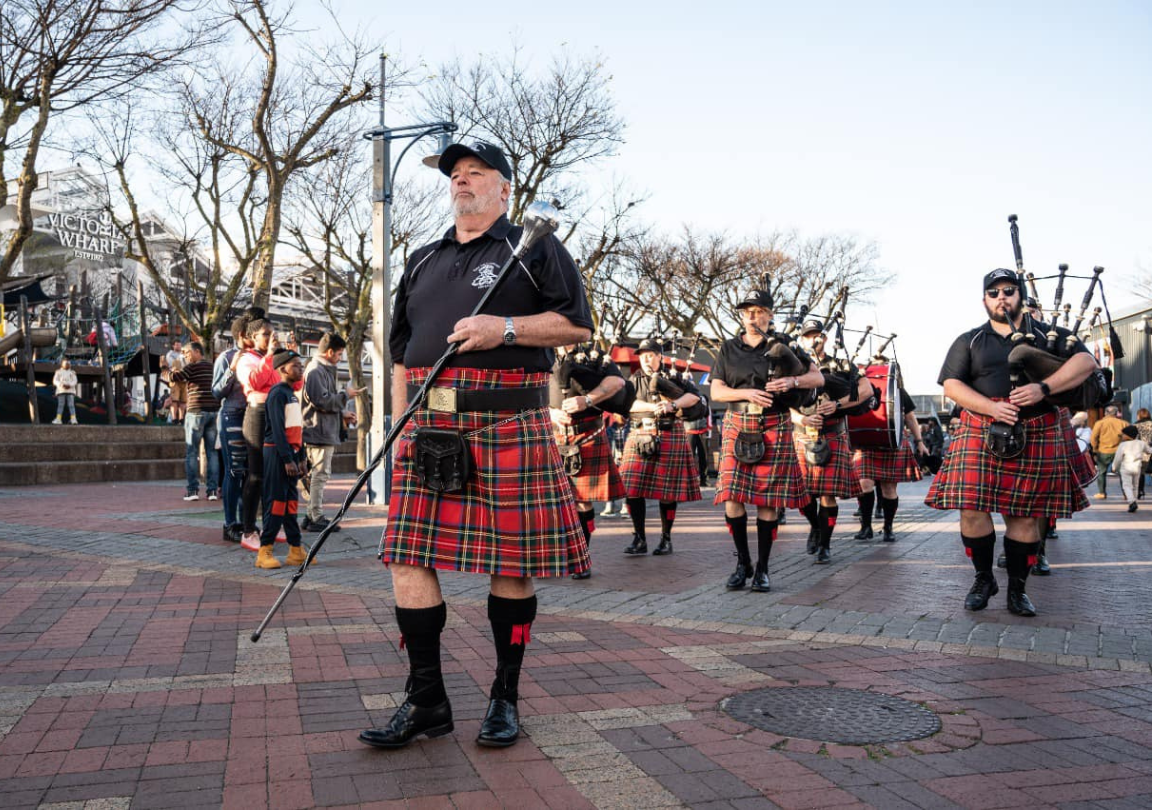

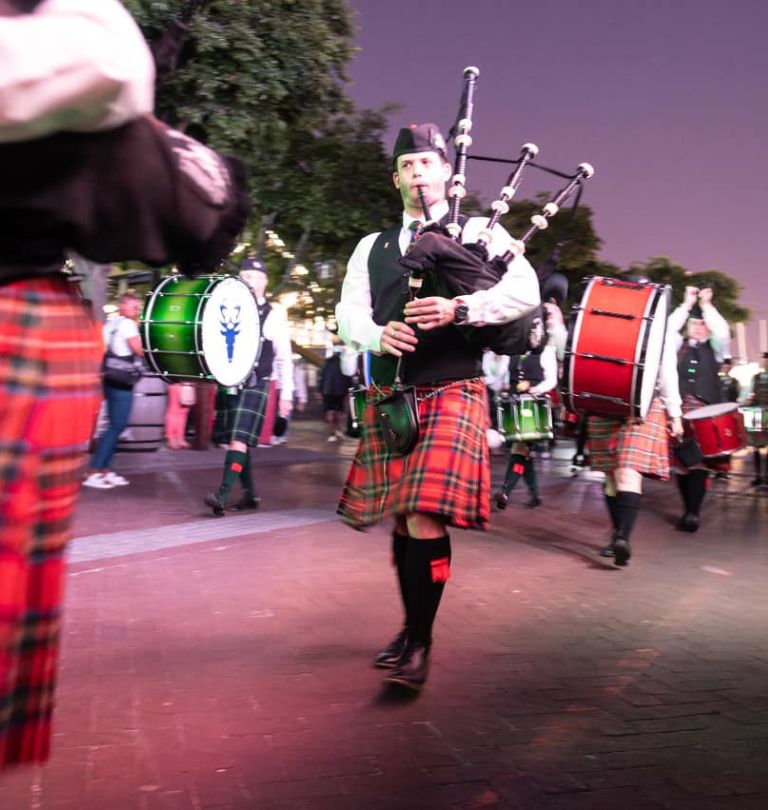

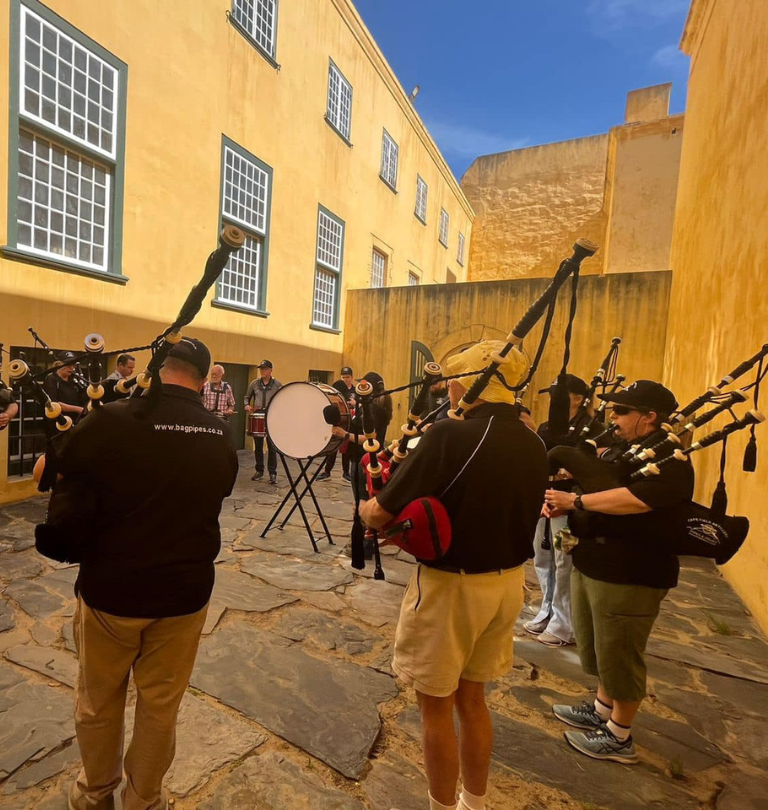
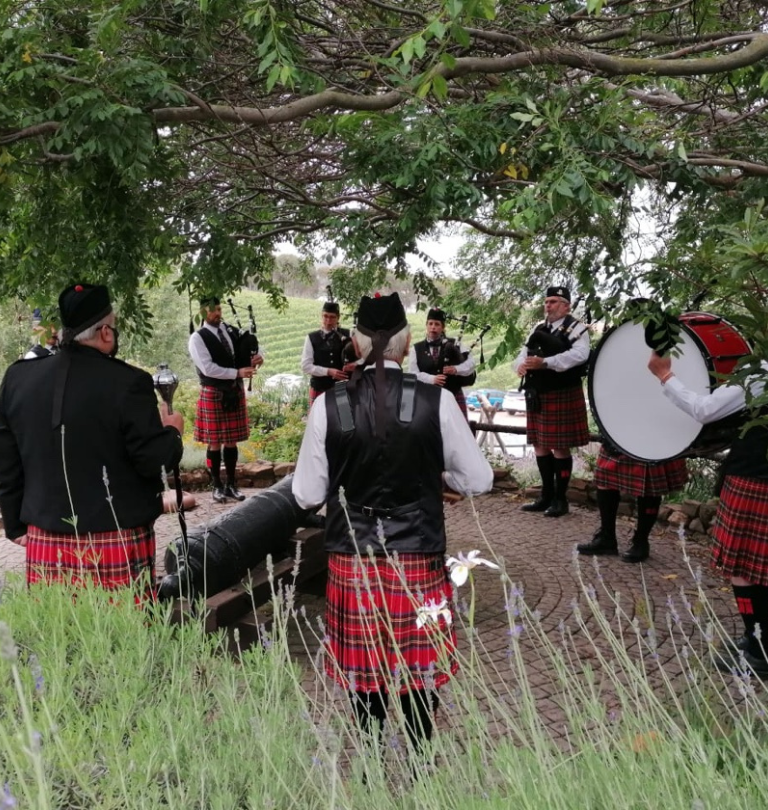
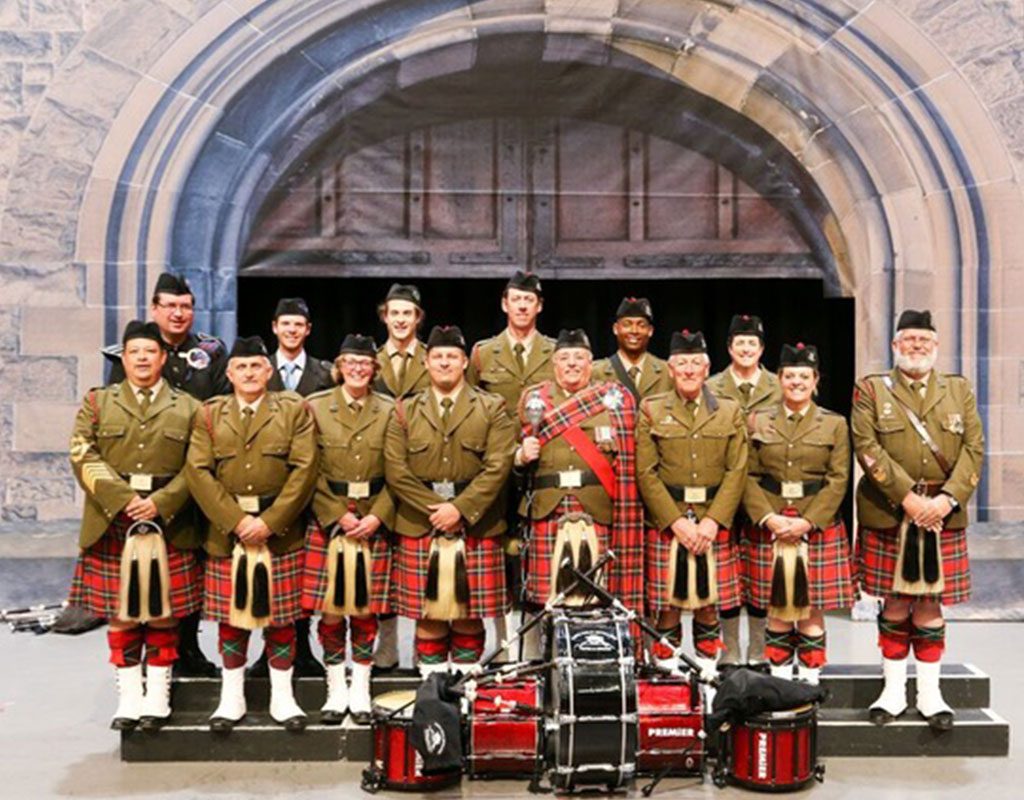
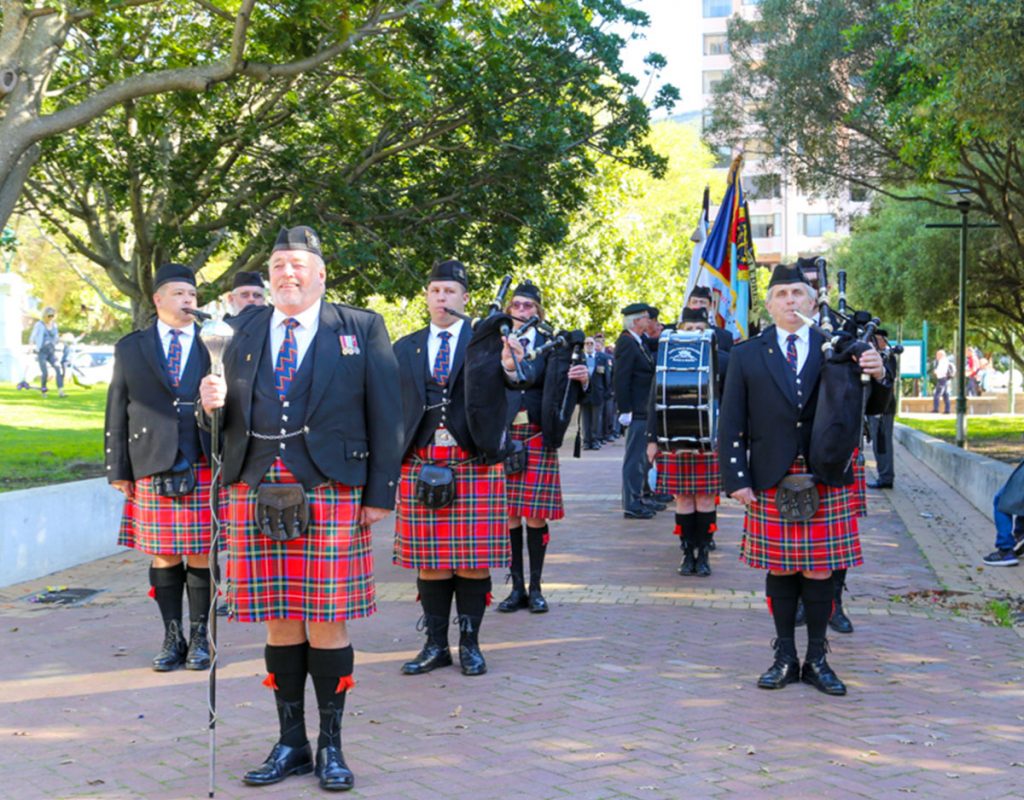
Our history
The Nelson Mandela Artillery Pipe Band, an esteemed musical institution based in Cape Town, South Africa. The band’s roots can be traced back to 1952 when Corporal Piper Ken Langlands, driven by his passion for the bagpipes, established the Cape Town Stewarts School of Piping.
In 1973, as the band’s lease for their practice venue in Woodstock was approaching expiration, Ken Langlands embarked on a quest to secure an alternative location. It was during this search that he approached the Cape Field Artillery Band, led by the Officer Commanding Lt-Col Lionel Crook, a devoted admirer of the bagpipes. After extensive discussions and negotiations, an agreement was reached: the Nelson Mandela Artillery Pipe Band would be granted the use of the facilities in exchange for performances as the Cape Field Artillery when required. This marked a significant milestone as the band officially gained military recognition.
Under the capable leadership of its 5th Pipe-Major, Grant Scheffel, the band is currently celebrating its 40th year of existence. With Pipe-Major Scheffel at the helm, the band is venturing into new dimensions, evolving and expanding its musical horizons. Guiding the band onto parade grounds is Drum-Major Bill White, whose commanding presence adds an extra touch of grandeur to their performances.
Throughout its illustrious history, the Nelson Mandela Artillery Pipe Band has had the privilege of sharing the parade grounds and concert platforms with esteemed musical ensembles like the internationally acclaimed SA Navy Band. They also frequently collaborate with the SA Army Band Cape Town, showcasing their remarkable talents and fostering a sense of camaraderie within the musical community. Their captivating melodies have graced festivals, weddings, funerals, and special occasions, leaving an indelible mark on each event they attend.
In August 2019, a significant transformation occurred as the regiment’s name was officially changed to the Nelson Mandela Artillery Regiment in alignment with the directives of the South African National Defence Force (SANDF). Reflecting this change, the band was likewise renamed, forever carrying the distinguished title of the Nelson Mandela Artillery.
Albion School of Highland Dancing
Be immersed in the vibrant celebration of Scottish culture through the Albion School of Highland Dancing, a beacon of tradition and talent in Cape Town. For numerous years, this esteemed school has been dedicated to promoting the art of Highland dancing, captivating audiences with their exquisite performances.
At the Nelson Mandela Artillery Pipes and Drums, we take immense pride in our association with the Albion School of Highland Dancing. Their graceful movements and captivating choreography beautifully complement the enchanting melodies of our bagpipes during our concerts and performances. It is an honor to share the stage with such talented dancers who breathe life into the rich tapestry of Scottish culture.
We are delighted to provide the Albion School of Highland Dancing with rehearsal spaces within the historic rooms of the Castle of Good Hope. This collaboration not only strengthens our bond but also enables the dancers to refine their artistry within the very walls that echo with centuries of history and tradition.

Frequently Asked Questions
A monthly fee of R 50 is collected to support the band’s expenses, including the purchase of instruments, uniforms, and reeds. However, we understand that financial constraints may affect some members, and in such cases, the fee is waived to ensure inclusivity and participation for all.
The band holds regular practice sessions at the Castle of Good Hope, taking place every Tuesday evening and Saturday morning. Additionally, aspiring musicians have the opportunity to practice at home using a practice chanter, or even with bagpipes in locations that permit the sound production.
Learning the bagpipes involves a series of key components and activities. It typically includes acquiring the necessary equipment, such as a set of bagpipes and related accessories. One must also become familiar with the various components of the bagpipes, including the bag, drones, chanter, and reeds.
Additionally, learning to play the bagpipes requires developing the necessary skills and techniques. This involves practicing proper finger positioning and movement on the chanter, which produces the melody, as well as mastering the coordination required to control the airflow into the bag and manipulate the drones to produce harmonious sounds.
Furthermore, a significant part of learning the bagpipes involves understanding music notation specific to the instrument. This includes learning to read bagpipe sheet music, which uses a unique system of symbols and notation.
To make progress in learning the bagpipes, one needs to dedicate regular practice time and seek guidance from a qualified instructor. Bagpipe lessons are essential to receive personalized instruction, learn proper technique, and gain valuable feedback.
The bagpipes have a unique and complex instrument design, which requires coordination and control of multiple elements simultaneously. Coordinating the airflow, finger placement, and maintaining consistent pressure on the bag while manipulating the drones and chanter can be a demanding task.
Furthermore, the bagpipes have a distinct sound and require learning specific techniques and ornamentations that are unique to the instrument. Mastering these techniques can take time and dedicated practice.
However, with proper instruction, regular practice, and persistence, it is possible to overcome the initial difficulties and make progress in playing the bagpipes.
The time it takes to learn to play the bagpipes can vary greatly depending on several factors, including the individual’s dedication, prior musical experience, practice frequency, and access to instruction. It is important to note that mastering the bagpipes is a lifelong journey, as with any musical instrument. However, here is a general timeline that can give you an idea of the learning process
It usually takes several months to a year of regular practice and instruction to achieve basic proficiency on the bagpipes. During this stage, learners focus on fundamentals such as proper finger technique, bag control, and producing clear and consistent notes.
The key factors influencing the learning duration are the amount of practice time invested, the quality of instruction received, and the individual’s natural aptitude for the instrument. Consistent practice, patience, and a passion for the bagpipes are crucial for progressing steadily on the instrument.
The most common type of bagpipes, known as the Great Highland Bagpipes, are typically tuned to play in the key of B-flat major. This means that when the bagpipes are played without any fingerings, the sound produced is in the key of B-flat major. However, by using different fingerings and techniques, pipers can play in other keys as well.
The instrument consists of four reeds, which play a crucial role in producing its characteristic sound. These include the chanter reed, responsible for creating the melody, and three drone reeds, which provide a continuous background harmonic accompaniment.
The chanter, the primary melodic component, usually has a range of approximately nine notes within a single octave. This restricted range requires pipers to employ various fingerings and techniques to create melodies and musical phrases.
